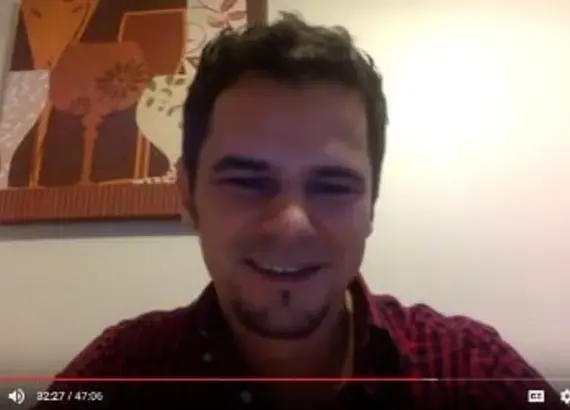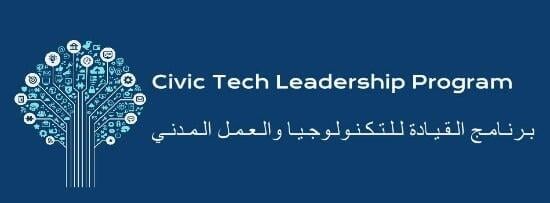
Success Story
NDI Partners with Stevens Initiative to Inspire Tomorrow’s Political Leaders
As part of the Civic Tech Leadership Program funded by the Aspen Institute Stevens Initiative, NDI and the Institute for Representative Government hosted a live virtual town hall on December 1, in which former Members of the U.S. Congress spoke to over 150 young leaders located in the Middle East, North Africa (MENA) and United States. Former Reps. Phil English (R-PA), James Slattery (D-KA) and Karen Thurman (D-FL) took live questions from the audience and discussed how youth can engage more in civic life, how technology and social media are transforming politics, as well as how technology is impacting politics in the U.S. in the wake of the 2016 elections.
During the town hall, the former representatives reflected on the early stages of their careers to inspire young participants to be politically active. “I’ve concluded that not only all politics is local,” said Rep. English after sharing how he got first involved in politics, “but by getting involved locally, you can make a real difference.”
Rep. Slattery referenced President John F. Kennedy's inauguration address as the source of his political engagement: "Ask not what your country can do for you, ask what you can do for your country."
As a middle school math teacher in Florida, Rep. Thurman was led to politics by a request from her students to prevent the closing of the local city beach. Thurman oversaw the students’ city council appeal and the beach remained open. “You should run for city council,” said the kids after their victory, and with the help of her students Thurman won her first election by five votes.
Participants from Egypt and Algeria asked questions about best practices for effective advocacy and how a non-politician can best influence the policymaking process. To address these questions, the guests emphasized the importance of understanding the incentives of politicians, and figuring out a pressure strategy based on these incentives, coupled with personal storytelling.
The audience also expressed concerns related to the results of the November elections in the U.S. and whether this could affect attitudes toward people from the Middle East and North Africa. The former representatives shared their views that visitors are always welcome and that the U.S. would remain an active and dedicated partner in the region.
A few days later, NDI organized another live conversation between Leadership Program participants and Belabbes Benkredda, the founder of the Munathara Initiative based in Tunis, Amman and Washington, DC, which promotes the voices of youth, women and marginalized communities in the Arab public sphere through community participation, online engagement and public debates. Benkredda shared lessons about facilitating constructive, rational dialogue on sensitive issues in Arab countries and everywhere.
We are in this era of post-factual discourse where the lines between opinions and facts are becoming increasingly blurred, and this has very serious ramifications for public discourse because it renders impossible constructive engagements,” Benkredda says, “that is why strengthening the sanctity of rational argument is a really critical pillar for the Munathara Initiative.
Two hundred young civic tech enthusiasts were selected to participate in the Leadership Program from a pool of applicants that consisted of alumni of the Technology for Accountability Lab, a free, open, bilingual online course that NDI developed with Stanford University’s Center for Democracy, Development and the Rule of Law (CDDRL). The Leadership Program attracted a diverse cohort of participants from 13 different MENA countries and the U.S. Out of all admitted participants, almost half belong to a group that is underrepresented in the technology sector and in exchange programs, including women, persons with disabilities, refugees and ethnic or other minority groups.
In a cross-cultural learning environment, Leadership Program participants collaborate with teammates to conceive a project idea that uses technology to advance the public good and introduce the idea in a short, bilingual video pitch. By connecting people who are working to address social problems in their own country contexts, the program intends to expand cross-cultural understanding of the challenges faced in different societies, while facilitating a collaborative problem-solving approach to overcoming them.
NDI launched the Civic Tech Leadership Program, in partnership with Stanford University’s CDDRL and the Institute for Representative Government. The Program is made possible through the Aspen Institute Stevens Initiative, with generous support from the U.S. Department of State and the Bezos Family Foundation.

